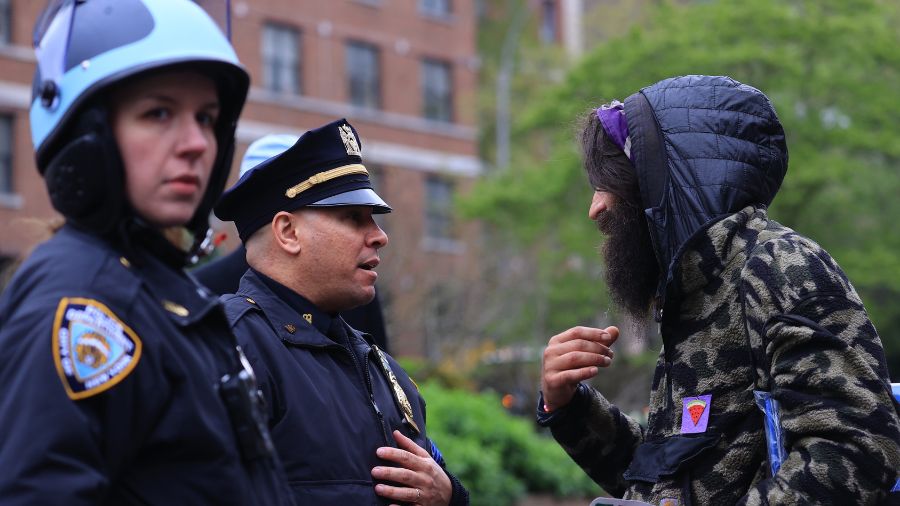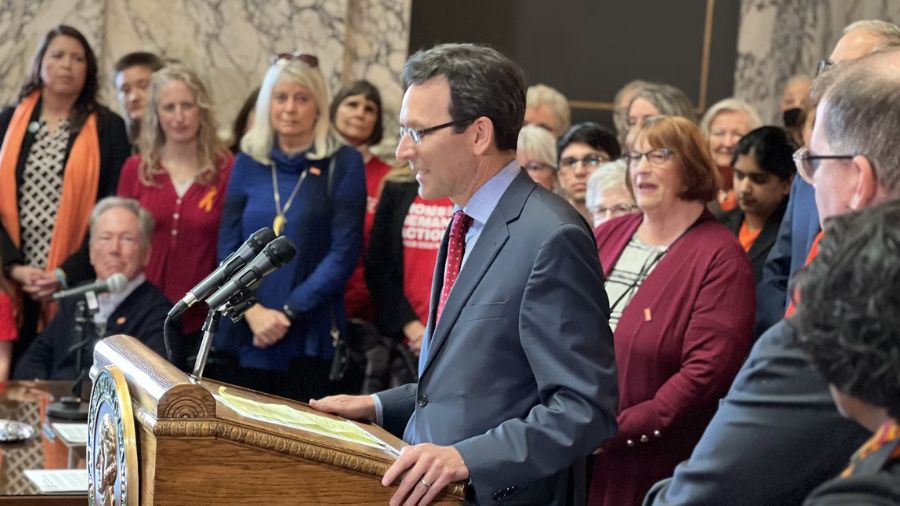Rantz: Times columnist dismisses homeless crisis with data from 1980s
Apr 4, 2019, 5:57 AM | Updated: 11:01 am

File photo. (AP)
(AP)
After KOMO TV’s “Seattle is Dying” documentary, we’ve seen lots of hot takes from conservative suburbanites vastly overstating how bad the situation is, and Seattle progressive urbanists who pretend there’s no problem at all. Both hurt the conversation.
But one of the most bizarre reactions to the documentary comes from Seattle Times columnist Gene Balk, who inexplicably uses data starting from the 1980s to explain things aren’t so bad in Seattle. It feels like it misses the entire conversation we’re having about homelessness.
Balk’s column is inspired, in part, by comments from readers about a once beautiful Seattle, leading him to wonder “if folks are romanticizing Seattle’s past a bit.”
He writes:
The show really touched a nerve, and I’m not surprised. I get an awful lot of reader email about homelessness that strikes a similar tone. In fact, one such email popped into my inbox as I was writing this column: ‘These drug using criminals are destroying what was once a very beautiful city’ it reads.
Through a conversation he had with a former cop, Balk compares 2017 data (the latest available from the FBI, his source) to the 1980s because … it makes his point? Indeed, you can cherry pick any date to help make your point.
“…a lot of folks seem to think has gotten much worse in Seattle is crime, but the data tell a different story,” Balk writes. “The rate of violent crime today remains well below the levels seen from the 1980s into the early 2000s.”
Yeah, no kidding.
The entire country was dealing with seemingly out-of-control lawlessness through the mid-80s and into the 90s. Seattle was no different. And, when compared to the 80s, the entire country has seen a significant dip in crime. Seattle, again, is no different.
But no one is arguing Seattle in the 80s or 90s or even early 2000s was better than Seattle in 2019. Most people, when talking about the beauty of Seattle, especially in the context of the documentary, are comparing it to, literally, just a few years ago.
The documentary was full of wide shots of a trashed Seattle, areas that are littered in trash, human waste, and needles. This is relatively new here and undoubtedly worsening. We did not have entire blocks of Seattle covered in trash and tents under Mayor Mike McGinn like we do today.
The problem worsened under Mayor Ed Murray, and is nearly out of control under Mayor Jenny Durkan.
Balk is right to suggest we’re also talking about crime, and anyone who suggests we live in a “Mad Max” atmosphere of significant violence is lying.
But ignored in Balk’s piece is commentary on his own graph showing a rise in reported violent crime in Seattle during the exact short time period most people are talking about now. In the last few years, we’ve seen a startling rise in violent crime.
Since 2010, per SPD crime data, we saw record high rates of homicide, rape and aggravated assaults in 2018. Spikes in homicide started in 2017, rape in 2016 and aggravated assaults in 2015. This is more on our minds than what was going on in the 1980s.
Balk spends the bulk of his crime-talk discussing reported property crime, which is, indeed, on the decline. But it’s a bit misleading.
There have been numerous reports of property crime victims not reporting them to the police because they know an understaffed SPD can’t realistically investigate their stolen bike nor will they be able to track down the smash and grab criminal that broke into their car.
Back in 2017, Balk himself warned that “a national survey by the Bureau of Justice Statistics found that in 2015, victims of property crime only filed police reports about 35 percent of the time.” No such warning was offered in his latest piece.
Balk also published a column last year about “Seattle has one of the highest rates of property crime among major U.S. cities.” The stats from the 1980s weren’t provided in that story.
Whether we’re talking about the literal mess or the crime associated with it, they’re both directly connected to policies pushed by our Mayor and Council. Ironically, we can look to the 80s and 90s to learn some lessons (ones we’ve apparently forgotten).
Why did the crime rate drop after the early 90s? To be brief, we hired a lot of cops, we enforced drug laws, and President Bill Clinton passed the Violent Crime Control and Law Enforcement Act, which offered billions to law enforcement agencies.
In Seattle, we’ve seen an exodus of cops, with a “dangerously low” number patrol officers remaining.
We don’t enforce drug laws, with a Seattle City Attorney and King County Prosecutor refusing to charge most drug crimes. And we’re certainly not passing any ordinances to give cops the ability to enforce the law; we’re making it harder for them to. Consequently, crime is going up.
Is Seattle dying? It’s subjective. I see it dying — but not dead; it’s like a houseplant you’ve forgotten to water. Some leaves are browning and falling off. But in the right hands, you can bring it back to health (Mayor Ciscoe?).
I’m certainly open to the debate, though it seems like the ones claiming KOMO botched the documentary don’t like their ownership and are the same people who’ve lead the discussion on solutions for the last decade as homelessness has gotten worse. But let’s at least debate the issue people are actually discussing, not hark back to a date no one has thought about since the literal 80s.
Listen to the Jason Rantz Show weekday afternoons from 3-6 p.m. on KTTH 770 AM (or HD Radio 97.3 FM HD-Channel 3). Subscribe to the podcast here.














